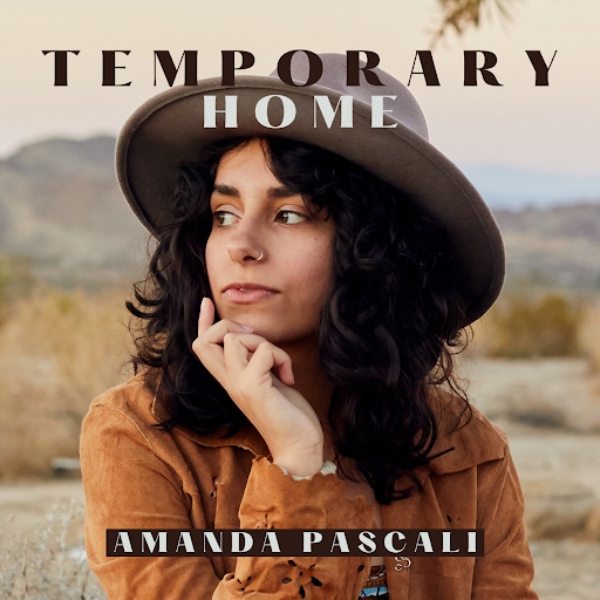Pascali explains that as the daughter of two immigrants from two different countries, she grew up feeling as if she was “too foreign for here, too foreign for home, and never enough for both.” Evoking that same feeling through her track, Pascali brilliantly cross-pollinates Afro-Cuban music, indie folk and even splices in samples from the American civil rights movement in order to effortlessly blend the modern world with musical stylings that are deeply rooted in history. The song ends poignantly with the question “where do you belong?” as if to point to the ceaseless struggles which encompass cultural assimilation. Through passionate storytelling and a deep connection to an omnipresent subject matter, “Temporary Home” is powerful on every level, lyrically and musically.
“Temporary Home” will be accompanied by the release of a music video for the track directed by Mexican-American filmmaker Joel Valdes and starring Gabriel Regojo, Oscar Riojas, and Amanda Pascali herself. The short film – a collaborative effort between Pascali and Valdes – tells the story of an immigrant who carries an allegorical suitcase as he perseveres through hardships in America (working in a factory, sleeping among roaches, eating stale bread) and ultimately gives that suitcase to his daughter at the end of the video. The suitcase, the roach, and the letter showcases a few of the elements of powerful symbolism that are displayed in this short-film-music-video hybrid production that captivates viewers as Pascali shares a visual representation of her father’s story.
About Amanda Pascali:
From a young age Amanda Pascali felt that she was “born to be a messenger.” Finding her storytelling medium at the age of 12 with her first guitar, Pascali began on her lifelong journey to share powerful stories with anybody willing to listen. Growing up with two immigrant parents, Pascali explains that “it is because of revolt and rebellion that [she is] alive.” Her father, a Romanian with Sicilian heritage, was granted asylum in 1986 after speaking out against the dictatorship and being forced to work in a labor camp. After moving to New York, he met Pascali’s mother, an Egyptian immigrant by way of France. Through her background, Pascali has learned to appreciate the diverse stories which make up the fabric of our lives and has set her purpose on highlighting them through her music. “When I was old enough to understand the sacrifices my parents had made for me and when I saw the effect I had on people while performing, I immediately realized not only my purpose but my platform,” she says.
Despite being so young, the 24-year-old has already released award-winning music and captivated the ears of fans everywhere by touring the world all while also garnering praise from Texas’ largest newspaper where she was voted “Best Musician of 2021.” Utilizing her music to create actionable change in the city she’s based in, Houston, Pascali was awarded a grant by the mayor in 2020 to develop an asynchronous ESL curriculum designed to teach English through music to immigrants whose ESL classes transitioned online as a result of COVID-19. Today, she is an “Artist in Residence” at Sawyer Yards Winter Street Studios and is working on a storytelling project called “The Other Side; bringing to light the stories of immigrants in Houston.” This Spring she plans to produce and curate six weeks of events to “highlight artists from Houston’s immigrant community,” as well as document stories of immigrants in her community through film, photography, and writing. In this way, Pascali’s overarching purpose as a messenger admirably informs everything she does.
Naming her sound “Immigrant American Folk,” Pascali explains that the genre represents America for its “mixed-up melting pot of flavors from everywhere.” Blending Latin, Balkan, and Mediterranean influences with American folk music, Pascali hopes to create a retro feel while also touching on relevant topics of importance today. “Had I not decided to pick up a guitar, set music to my family’s story, and build a platform upon which to tell that story as I grew older, it may have been forgotten,” she explains. “My mission is to use music to create a space for anyone who has felt as if they didn’t ‘belong.’ My art aims to unite a powerful community of people from all backgrounds by promoting togetherness and empathy through music.”
